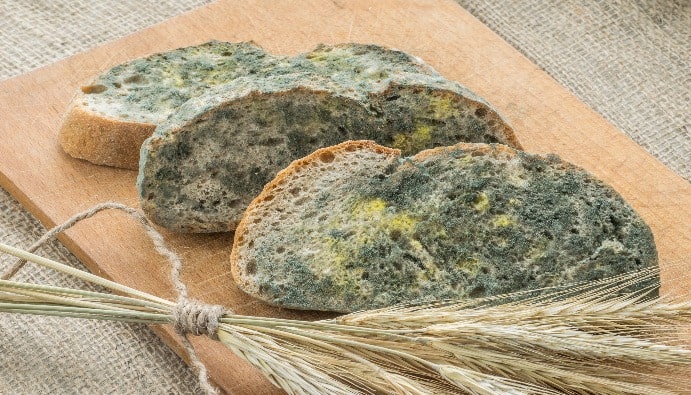
BLOG
KATEGORİDEKİ DİĞER YAZILAR

The biggest factor in food spoilage is microorganisms. Foods may be in contact with many microorganisms in the process until they reach the consumer. These microorganisms cause food spoilage. The most common ones are yeast and mold-induced spoilage, which we can even witness at home.
Molds are defined as “multicellular fungi that form mycelium” and yeasts are defined as “single-celled structures that usually do not form mycelium”. Yeast and mold determination is based on preventing the growth of bacteria on food and isolating and counting yeast and mold.
While some yeasts and molds are useful in the production of foods such as cheese, beer and wine, they mostly play a role in food spoilage. Yeasts and molds are microorganisms that can easily grow in very wide pH ranges. They grow easily in the storage range of 10-35 oC, in water activity of 0.85 and above, and in environments with high salt and sugar concentrations.
Yeasts and molds can cause structural disorders, gas formation, bitter taste and bad odor in food, as well as food poisoning due to the toxic substances they secrete. They occur especially in foods sold in public markets, in contact with air before packaging and in poorly packaged foods.
Yeast and mold is a quality criterion especially for products that are marketed in the open, exposed to open air before packaging, may be contaminated by packaging material, and do not undergo any heat treatment other than washing and cooling/freezing. Mold is more common in products that are in contact with soil, such as spices that are ground without washing, while yeast is more common in sugary products. Mold and yeast are searched for in food products and according to the result, we can have an idea about production, business hygiene, personnel hygiene and working environment.
Yeast and mold multiply rapidly, especially in humid and carbohydrate-rich environments, leading to food spoilage. For this reason, yeast and mold analysis is mandatory in foods such as milk and dairy products (cheese, yogurt), bread, bakery products, fruits and vegetables, jam, dried fruits, sauces, pickles, meat and delicatessen products. Microbial control is also of great importance in packaged foods and fermented products. Molds and yeasts not only spoil the structure and taste of the product, but in some cases can threaten human health by producing harmful substances such as mycotoxins . Therefore, monitoring the presence of mold and yeast with regular controls during the production process is a critical practice to ensure food safety.
Nanolab Laboratories Group continues to provide services within the scope of Yeast and Mold Counting in Foods . We also provide services on Regulatory Compliance in Food.
Contact us for more information.
You can follow us on LinkedIn for up-to-date news and posts about our services.
Follow our Instagram account to be informed about our latest blog posts.